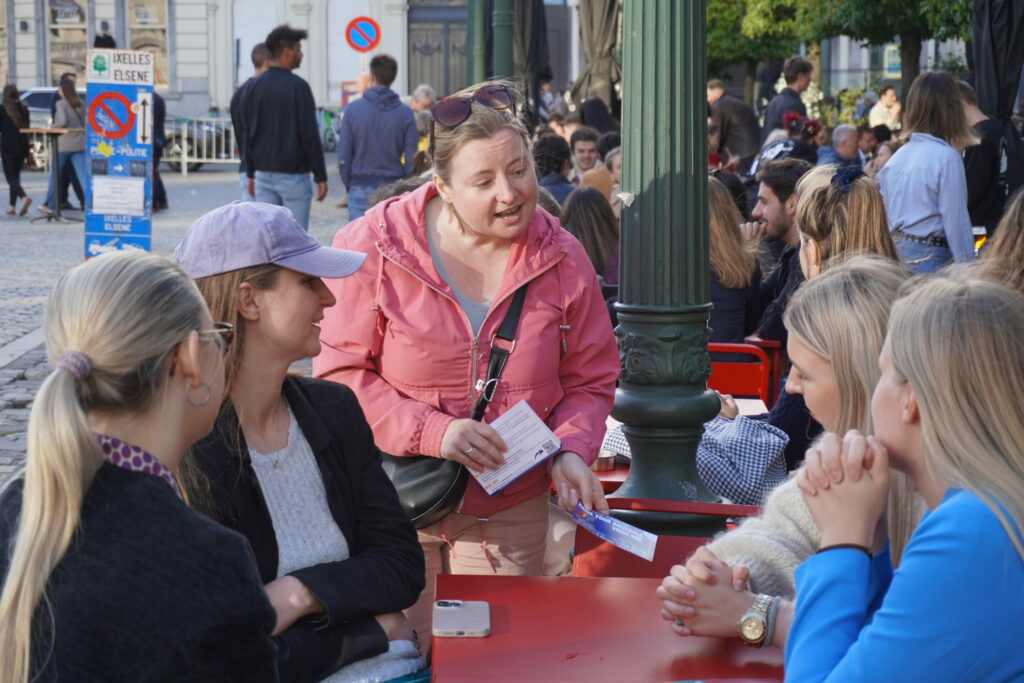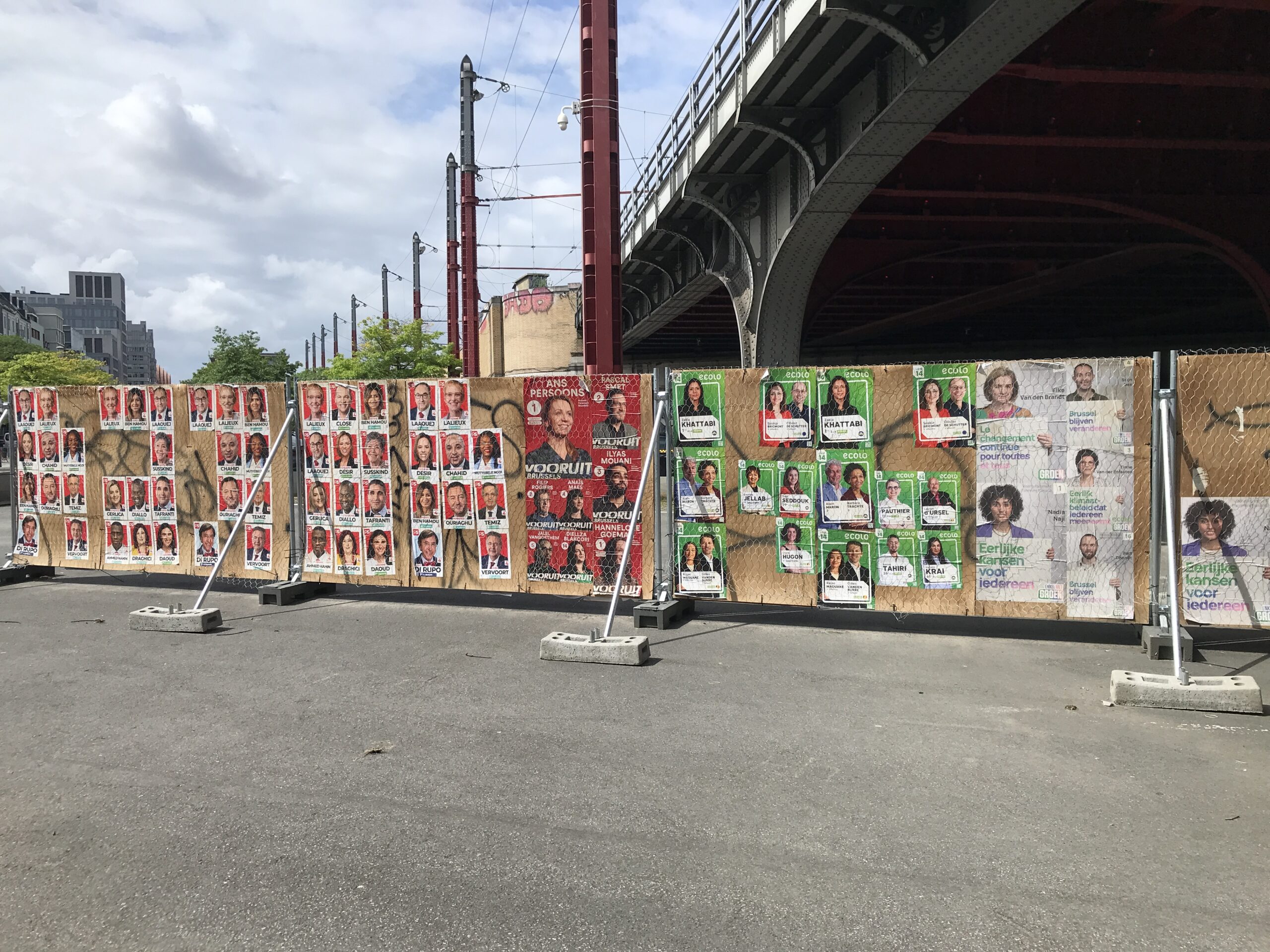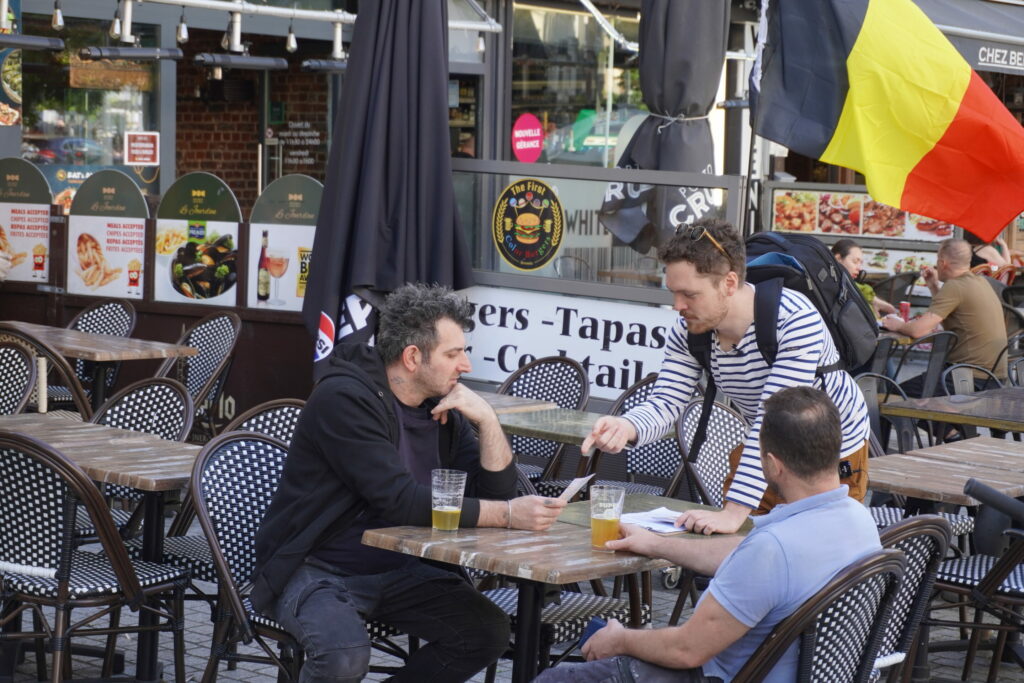One in three Brussels residents is not Belgian and while the majority have the right to vote in the communal elections this October, few are registered to do so. In many cases, this is not for a lack of interest, but rather not being sufficiently informed.
Belgian nationals already voted in the federal and regional elections on Sunday 9 June and were joined by EU citizens voting in the EU elections on the same day. The municipal and provincial elections will take place on 13 October, providing an opportunity for non-natives to participate in Belgian elections. In some Brussels municipalities, non-Belgians even account for half of residents. But unlike Belgians – who are automatically registered to vote and must do so – international residents must register by 31 July.
However, very few non-Belgians are even aware they can vote. In the 2019 elections, just 17% of international people eligible registered to vote. Now the civic engagement platform Restless Brussels is working to boost engagement among the international community.
"As a group, we are trying to grow closer to the city and help other people grow closer to the city," Restless Brussels founder Tom Moylan told The Brussels Times. "At the moment, we consider voting to be one of the fundamental building blocks of participation in Brussels life."
Contributing to new home
Restless Brussels has been building a community around voter registration. To do so, it has organised a series of events and teamed up with citizens' organisations Stand Up for Europe, VoteBrussels, Union for Unity, COMITES and FILEF, who collectively mobilised dozens of volunteers who take to the streets to inform people.
"The idea is that we meet international residents and ask them if they're registered. If they are not – which is the case for the vast majority – we persuade them to register," Moylan explains.
One of the volunteers, Eva, has been living in Brussels for almost 20 years and registered to vote as soon as she arrived. "I care about housing, education, security and rubbish collection and want to contribute to where I am living," she told The Brussels Times.
A discussion she had with a Brussels politician who questioned why the government should listen to international residents if most don't register to vote prompted her to now urge others to vote. "That for me was very striking; people living here are not tourists, we are part of Brussels life. As a community, we have so much to contribute. Voting is a big part of this."

Dozens of volunteers have been out spreading the word about registering. Credit: Mirko Paradiso
Italian-Ukranian Adriano Rodari moved to Brussels 1.5 years ago and wants to make the city feel like home. "I have moved around a lot and have never been able to call a place home," he told The Brussels Times. He quickly started language classes and tried to understand how the city operates.
"I have seen so many international residents complain about life in Brussels. It's important to share these concerns but then they don't engage more on a local level to fix certain things. This is why voting is so important. We have a voice in these matters."
Voting myths and real barriers
The volunteers all agree that most non-Belgians have no idea they can vote. Moylan puts this down to several factors. For one, Belgium's mandatory voting means there is not the "Get out to vote" culture which exists in the UK or elsewhere. "Voters in Belgium are automatically registered and voting is mandatory. Neither of those things are the case for internationals who live here. So nobody is automatically registered, even though it could be done."
More importantly, most people are not told about their right to vote as there is no cohesive system to target this audience. "There is a responsibility on the international community to engage but how is this possible when there's no large-scale attempt to support them in this?"

The political landscape in Brussels is notoriously crowded. Credit: Orlando Whitehead
Others are put off registering by rumours about the process. "Some believe that if they register here they will lose their right to vote at home. This isn't true. Others think they will be fined if they register and don't vote." On paper this is true but in reality almost no Belgians were penalised for not voting in the 9 June elections. The early deadline to register (three months ahead of elections) has also been cited as a barrier.
Perhaps the biggest block though is that people wouldn't know how to vote: Brussels is a very complicated political environment that even lifelong residents struggle to comprehend. As a result, several organisations have therefore been engaging in voter education. "This is about more than just registering; we're trying to give people avenues to build a meaningful relationship with the politics of the city, to be able to form their views. That in turn becomes a tool to promote a broader civic engagement."
Concrete framework
Moylan criticised the fact that despite Brussels being the capital of Europe, it is largely up to a handful of NGOs and volunteers to fill the democratic void by encouraging international residents to register to vote. "More needs to be done to make Brussels more democratic and it is not just the international community that says so."
He refers to the resolution adopted by the Brussels Regional Parliament in May, which aims to promote voter registration and demands that the regional government takes more actions to approach potential voters. "Brussels essentially said 'We need to do better for voter engagement'." But crucially, the reform will not be implemented in time for the October elections.
Bryn Watkins – communications and project manager at commissioner.brussels, which helped with the voter registration campaign – stressed that the Brussels authorities are already trying to push non-Belgians to register. For instance, the region has provided finance to NGOs to mobilise volunteers.
"I think there is willingness. Some communes put information in English on their websites; others have been sending out letters to inform residents; some are putting up posters or ads in their commune magazines. But it has been a bit ad hoc," Watkins told The Brussels Times. He also regrets that the push for voter registration didn't start sooner.
Related News
- Nearly half of Brussels residents did not vote in regional elections
- Brussels, the city of bubbles
- Brussels heading for 'democratic deficit' as non-Belgians do not register to vote
Commissioner.brussels welcomed the resolution but Watkins stressed that this needs to come with a clearer regional strategy that properly equips communes, notably with budgets and tailored strategies to increase the international vote.
"At the moment, the mandate to inform non-Belgians about their right to vote is not very clear. We're talking about a third of potential voters in the region. They need to have things explained to them. It's not a marginal issue."
Whether current efforts pay off won't be clear until August. The Belgian Interior Ministry publishes the non-Belgian voter registration rate every month. Currently this has dropped by nearly a third (from 17% in 2019 to 12%). But it is likely that most of the recent registration forms will not be processed until after the registration deadline. "For now, we are sailing in the dark," Watkins said.

